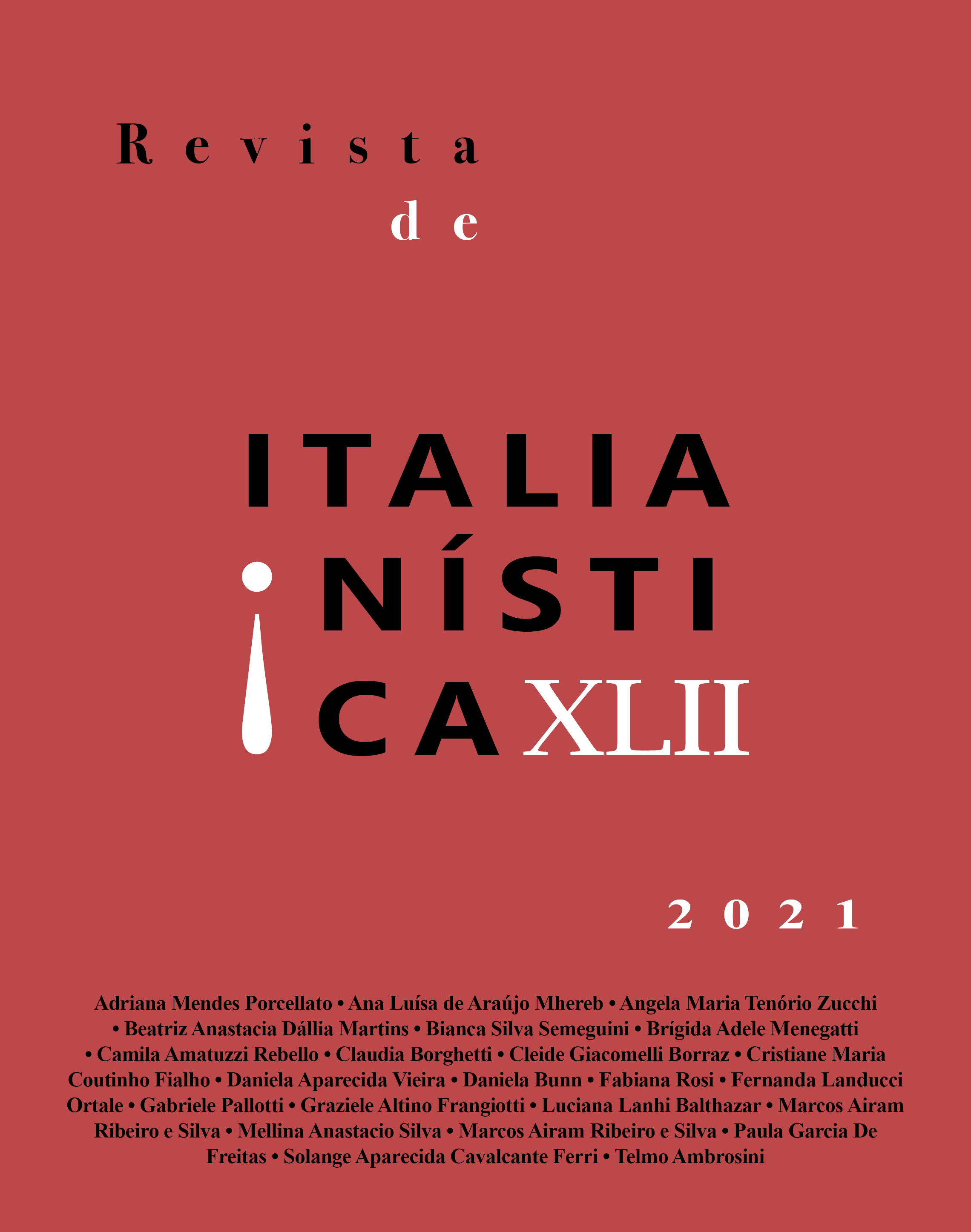Interculturality in Italian Teaching: A report on Teacher Education in the City of São Paulo
DOI:
https://doi.org/10.11606/issn.2238-8281.i42p44-63Keywords:
Interculturality, Teacher education, Italian L2, Teaching in the city of São PauloAbstract
Culture has played a prominent role in the scope of L2 teaching and learning only since the 1990s, despite its clear relationship with language. Even
so, nowadays the inclusion of the cultural component in the classroom is still a great challenge for L2 teachers (KUMARAVADIVELU, 2008). Based on the importance of such challenge, the treatment of culture in L2 classes was one of the topics covered during the Didactic Support for Italian Teaching, included in the Multicultural Training Program in Italian Language for Teachers of the Municipal Education System of the City of São Paulo, promoted by the Instituto Cultural Ítalo-Brasileiro in partnership with the city of São Paulo and with the Graduate Program in Italian Language, Literature and Culture of the Universidade de São Paulo, in the second half of 2020. We propose an experience report in order to show how teachers of the municipal schools of São Paulo have chosen to take an intercultural approach in the development of projects for teaching Italian in the schools where they work. At first, we will show how the intercultural approach was treated by the teacher educators in the meetings of the aforementioned support. Then, we will describe the project proposals that incorporated the intercultural
component among their goals and will reflect on the paths found by these teachers for the insertion of cultural aspects in their practices, based on the concepts of emics and ethics, as proposed by Goodenough (1970) and Agar (2007). Finally, we will elucidate how the proposals seek to stimulate the development of intercultural competence (BYRAM, 1987; CORBETT, 2003).
Downloads
References
AGAR, M. Language shock: understanding the culture of conversation. New York: Perennial, 2002.
AGAR, M. Emic/etic. In: Ritzer, G. (ed.) The Blackwell Encyclopedia of Sociology. Oxford: Bla-ckwell Publishing, 2007.
AGAR, M. Making sense of one other for another: ethnography as translation. Language e communi-cation. n. 31, p. 38-47, 2010.
BAUMAN, Z. Culture as praxis. Londres: Sage Publications, 1999.
BYRAM, M. Teaching and Assessing Intercultural Communicative Competence. Clevedon: Multi-lingual Matters, 1997.
CHASSOT, A. Alfabetização científica: uma possibilidade para a inclusão social. Revista Brasileira de Educação, n. 22, p. 89-100, 2003. DOI: https://doi.org/10.1590/S1413-24782003000100009
CORBETT, J. An intercultural approach to English language teaching. Clevedon: Multilingual Ma-tters, 2003.
GOODENOUGH, W.H. Description and comparison in cultural anthropology. Chicago: Aldine, 1970.
KRAMSCH, C. Language and culture. Oxford: Oxford University Press, 1998.
KUMARAVADIVELU, B. Cultural Globalization and Language Education.Yale University Press, 2008.
LACERDA, G. S. Alfabetização científica e formação profissional. Educação & Sociedade, n. 60, p. 91-108, 1997. DOI: https://doi.org/10.1590/S0101- 73301997000300006
LEAL, M. C.; SOUZA, G. G. Mito, ciência e tecnologia no ensino de ciências: o tempo da escola e do museu. In: Atlas do I Encontro Nacional de Pesquisa em Ensino de Ciências, Águas de Lindóia-SP, 27-29 nov. 1999.
PIKE, K.L. Language in relation to a unified theory of human behavior. Monton: the Hague, 1967.
SERRA BORNETO, C. S. C’era una volta il metodo. Tendenze attuali nella didattica delle lingue straniere. Roma: Carocci, 1998
SPENCER-OATEY, H. What is culture? A compilation of quotations. GlobalPAD Core Concepts, 2012.
VYGOTSKY, L.S. The history of the development of higher mental functions. The Collected Works. New York: Plenum Press, vol. 4, 1997.
Downloads
Published
Issue
Section
License
Copyright (c) 2021 Revista de Italianística

This work is licensed under a Creative Commons Attribution-NonCommercial-NoDerivatives 4.0 International License.
A revista retém os direitos patrimoniais dos artigos e os publica simultâneamente sob uma Licença Creative Commons-Atribuição-Não Comercial-Sem Derivações.



